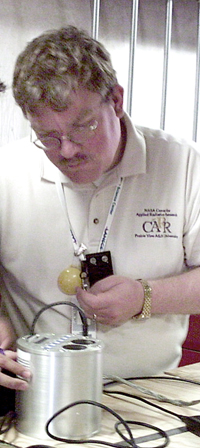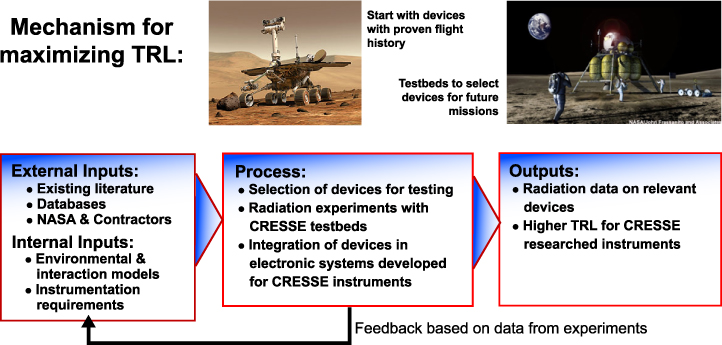 Primary Investigator – Richard Wilkins
Primary Investigator – Richard Wilkins
CRESSE electronics research gears up to assure space mission reliability, safety
Keeping NASA astronauts and their critical electronic equipment safe from the effects of harmful radiation on long missions in deep space is the role of the new Center for Radiation Engineering and Science for Space Exploration (CRESSE) at Prairie View A&M University.
Principal Investigator Dr. Richard Wilkins said CRESSE researchers will focus on radiation research directly applicable to astronaut health and safety. The guiding principle of electronics radiation research for the next four years will be one of assuring mission safety and reliability by testing electronic devices under realistic planetary conditions.
Wilkins said the goal is to maximize the Technical Readiness Level (TRL) of CRESSE research instruments and new electronic devices for space applications. The program’s objective is to provide NASA and NASA contractors with radiation effects data gathered by CRESSE researchers from realistic environments.
CRESSE research will start with electronic devices that have a proven flight history and expand the body of knowledge using carefully prepared testbeds in order to select devices for future NASA missions.
The goal will not only be to maximize the technical readiness level of radiation instrumentation and shielding knowledge, but to attract and engage more of the nation’s underrepresented minorities in technically challenging, multi-disciplinary scientific and engineering disciplines that contribute substantially to NASA programs.
Education and Research
The education and outreach component of CRESSE Electronics Research will support up to two of the three CRESSE Ph.D. students expected be involved in the PVAMU program. Wilkins suggests that potential Ph.D. research topics might include:
(1) Effect of scaling in single event effects in Moon-Mars environments.
(2) Radiation effects in mixed signal devices in Moon-Mars environments, and
(3) Radiation effects on nano-electronic devices in Moon-Mars environments.
A new Ph.D. level course, “Introduction to Radiation Detection Instrumentation and Radiation Tolerant Electronic Systems” is expected as the result of CRESSE work, adding to the general engineering graduate course, “Space and Terrestrial Radiation Effects” that was taught in 2007 and 2008.

